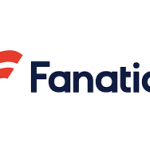Advisors ask me all the time of the role of education in participant directed 401(k) plans and it’s an important question. Participant directed 401(k) plans that are governed under ERISA §404(c) offer the plan sponsors liability protection based on a participant’s gains or losses on their account when they direct their own investment.
There have been so many misconceptions that plan sponsors and advisors have had concerning ERISA §404(c) plans. They had this belief that if they just give a mutual fund lineup and some Morningstar profiles to plan participants that they are exempt from liability. ERISA §404(c) protection is about following a process and Morningstar profiles is just not enough education to give to plan participants. On the flipside, education to participants doesn’t have to amount to an MBA education.
I think an effective education component to ERISA §404(c) plans should include enrollment meetings where the characteristics of the plan are discussed, as well as the investment options, and offering the building blocks of financial education to assist participants to get a better understanding on how to choose investments.
Advisors that may have issues in offering education should always consider using some of the online resources out there such as rj20.com, who could offer investment advice that an advisor can’t if they won’t comply with the investment advice regulations.
In addition, written materials such as plan highlights and some Morningstar profiles should always be distributed.
Also while many advisors dislike, one on one meetings to participants should always be offered. While most participants will probably shun such meetings, they should always be offered to those that want them because as we know, every participant has a different financial goal and need. One on one meetings offer participant individualized attention on asset allocation and fund choices; it can be an effective means of educating plan participants more than what a general enrollment meeting can offer. It can help participants understand how retirement plan assets relate to their other assets as part of a comprehensive financial plan.
Advisors should always look at education as liability protection, because offering participant education help a plan sponsor minimize their liability under ERISA §404(c).
While I always stress education as important part of the fiduciary process, it’s not about achieving a specific result from participants directing their own investments. Offering participants educations is like the old proverb, “You can lead a horse to water, but you can’t make him drink.” So no matter how great the education component is, there is no guarantee that it will help plan participants achieve a better financial result because like they say, there is no guarantee in life, except maybe death and taxes. The participant who put all his money into a mid-cap fund because he considers it the “average of the market” may still do so even after getting education at the enrollment meeting and through one on one meeting. As with most things with retirement plans, it’s about following a process and not guaranteeing a result.







